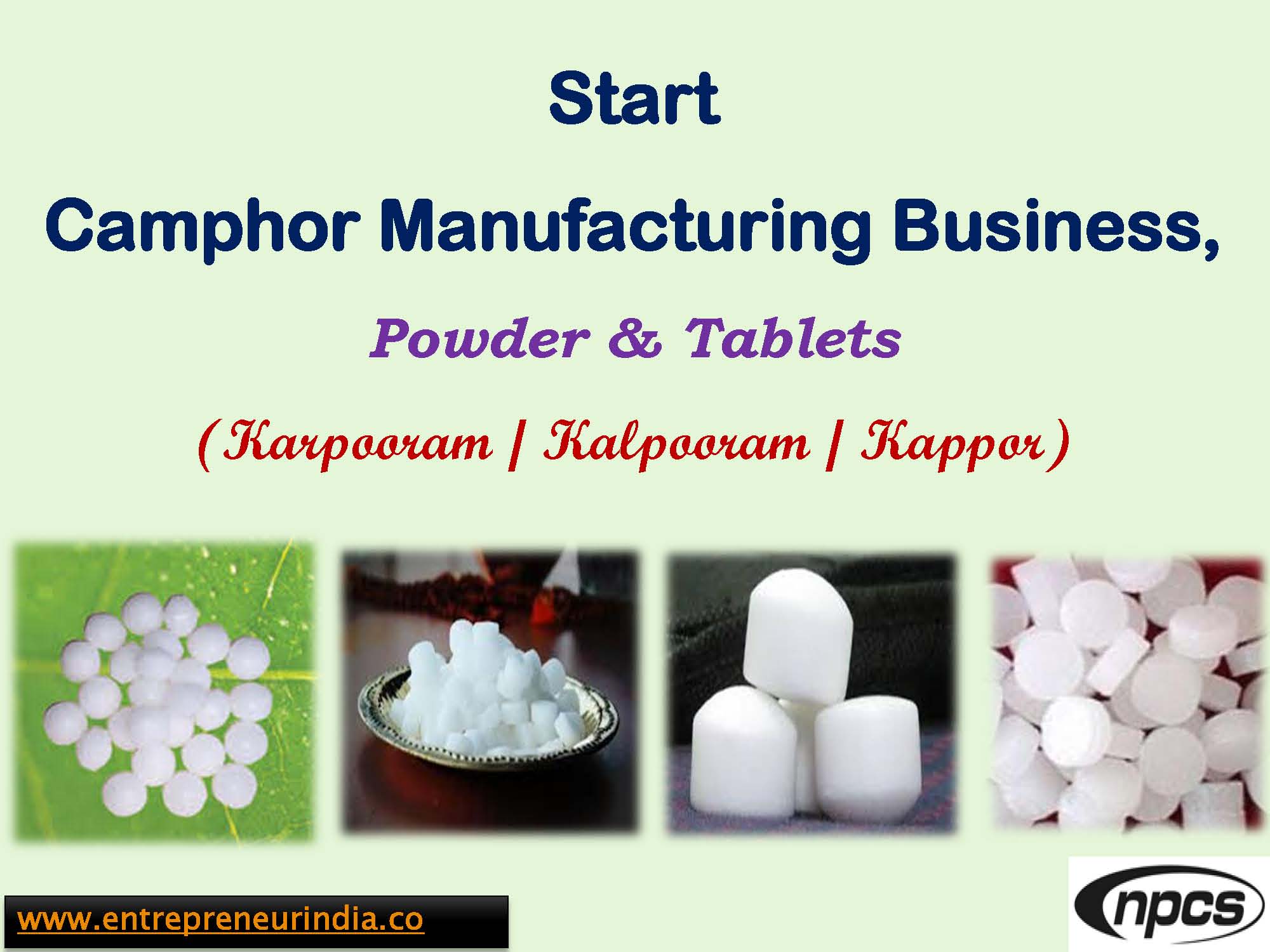
With rising demand in religious, pharmaceutical, and wellness industries, many entrepreneurs are showing interest in how to start camphor manufacturing business in India. Camphor (Kapoor) is widely used in temples for aarti, in ayurvedic medicines, vapor rubs, mosquito repellents, and even air fresheners. The growing awareness of natural products and the shift toward organic lifestyle choices have made camphor a daily-use item in many households. Moreover, the low setup cost and consistent raw material availability make this business accessible for small and medium entrepreneurs. With proper planning, quality assurance, and market targeting, camphor manufacturing can be both profitable and scalable.
How to Start Camphor Manufacturing Business in India
Starting a camphor manufacturing unit involves selecting the right type of camphor product, investing in basic equipment, ensuring safety standards, and building reliable distribution networks. Here’s a complete overview of what it takes to launch and run a successful camphor production unit.
1. Market Demand and Product Scope
Camphor exists in many forms: tablets, cones, cubes, and even powder. It is in constant demand in temples, households, wellness stores, ayurvedic centers, and medical supply outlets. Moreover, camphor is considered sacred in Indian rituals and is also used in products like balms and inhalers due to its cooling and anti-inflammatory properties. In contrast to synthetic room fresheners or repellents, camphor is preferred for being chemical-free and environmentally friendly. As a result, there is strong year-round market potential across both urban and rural India.
2. Raw Materials and Manufacturing Process
The key raw material in this business is turpentine oil, which is chemically processed to extract camphor crystals. The process includes:
-
Distillation or sublimation to extract camphor from turpentine oil
-
Cooling and solidification into crystals
-
Molding the crystals into various shapes (tablets, cones, cubes) using pressing machines
-
Packaging in airtight, moisture-resistant containers
Moreover, the process must be carefully monitored due to the flammable nature of camphor. Proper ventilation and fire safety protocols are mandatory in the production area.
See More –Razor Blade Manufacturing Company
3. Machinery and Setup Requirements
For a small-scale camphor manufacturing unit, you’ll need the following equipment:
-
Camphor tablet pressing machine
-
Crystalizer or sublimation unit
-
Mixer and dryer (optional for blended camphor variants)
-
Weighing and packaging machine
-
Fire safety setup and PPE (personal protective equipment)
A small plant can be started with an investment of ?5–10 lakhs, depending on the scale and automation level. Moreover, the setup requires 500–1000 sq. ft. of space in a well-ventilated, dry area. Investing in a semi-automatic machine boosts efficiency while keeping operational costs low.
4. Licenses, Packaging, and Distribution
To legally start camphor manufacturing business, you’ll need:
-
Udyam/MSME Registration
-
GST Registration
-
Factory License
-
Pollution Control Board NOC (if using solvents or in bulk manufacturing)
-
Trademark registration for branding
Camphor should be packed in sealed, tamper-proof containers to avoid contamination and moisture exposure. Moreover, use proper labeling that includes net weight, batch number, and usage instructions. You can distribute through wholesalers, temple supply shops, general stores, ayurvedic retailers, and e-commerce platforms like Amazon and Flipkart.
See More –Noodles and Tastemaker Manufacturing Business
Conclusion
To start camphor manufacturing business, you don’t need massive investment—just a solid understanding of production, packaging, and market demand. With minimal raw material costs and year-round consumer demand, the profit margins in this business are high. Moreover, with smart branding and eco-friendly positioning, camphor products can appeal to a wide market. As religious activities, natural remedies, and traditional practices remain integral to Indian culture, camphor manufacturing remains a sustainable and rewarding business idea for new entrepreneurs.





